Share the post "To Master Reality with Black Sabbath, Let Philosophy be Your Guide by William Irwin"
William Irwin is the editor of Black Sabbath and Philosophy: Mastering Reality (Wiley-Blackwell, 2012) and here he gives us his views on what we may expect from the new Black Sabbath album currently being recorded…
To Master Reality with Black Sabbath, Let Philosophy be Your Guide
Professors have been obsessing over the Beatles and Bob Dylan for long enough. Now it’s time to give the boys from Birmingham their due. For Black Sabbath and Philosophy: Mastering Reality, I’ve gathered an international crew of intellectuals who also happen to be diehard Sabbath fans. In the book we tackle the perennial philosophical debate among Sabbath fans: Is it still Sabbath without Ozzy? We also look at the definition of metal and trace the metal family resemblance back to the fathers of all things unholy. As any fan can tell you, the lyrics that Geezer wrote for the Ozzy-era albums are rich and provocative. So we examine the lyrics to investigate the nature of good and evil. Are they two opposing forces doing battle on the cosmic scene? Or is evil just the absence of goodness? Despite Satan’s status as “Lord of this World,” Sabbath’s message is clear: hope and love conquer all. As we’re instructed in “Children of the Grave,”: “If you want a better place to live in spread the word today / Show the world that love is still alive you must be brave”. In Black Sabbath and Philosophy Aristotle explains why Sabbath’s sound counts as art; Schopenhauer explains why the music sounds unsettling; and Marx explains why the occult may be the opiate of the masses. As it turns out, Sabbath’s lyrics are actually Britain’s chief contribution to existentialism, the philosophy that urges us to overcome absurdity and despair through acts of freedom and self creation. Just listen to the songs on Vol. 4 if you don’t believe me.
My purpose here, though, is to look ahead. We’ll have a new Black Sabbath album in early 2013. Unfortunately, Bill Ward will not be playing drums. In February 2012 Ward said that he had been presented with an “unsignable contract.” The implication was that he would not be paid fairly in his estimation. This is a true loss. Ward has always been an under-appreciated member of the band. No ordinary drummer, he contributed a unique percussive sound to the classic Sabbath albums. Ward was influenced by jazz and swing, giving his drumming an improvisational feel; he doesn’t so much keep time as create an atmosphere. As Ward explained his playing in For the Record: Black Sabbath, an Oral History:
“If Tony would play a riff, I was able to support that riff completely. I don’t play time as a drummer and I don’t play notes. I play orchestration. I’ve always played orchestration, that’s how I play. So when I listened to Tony’s riffs, I’m not hearing a riff. I’m hearing an entire piece. So I accompany that piece, and if it needs simplicity, or if it needs something else to go with it, I try to accommodate the action of the riff. I know what it means. I can see the anger in the riff. So that’s how it was—intuitive writing between us.”
In fact, Ward’s timing is a little off on some songs. Consider, for example, the staccato verse riffs in “War Pigs” where Ward is off just a little, adding to the feel of the song. Or consider Ward’s drumming on the song “Black Sabbath,” which James Bondarchuk describes in the following way in his chapter in the book Black Sabbath and Philosophy:
“Pay attention to how Ward reacts to the interplay created by the tritone melody and Ozzy’s sinister delivery. A light touch of the cymbal keeps the beat, but the drum fills are sparse, brooding, building sonic tension by straying just a bit off time, hanging back until a slow but emphatic roll brings them to the foreground. It is one of the most ominous pieces of drumming ever recorded, yet it never sounds overly assertive or self-indulgent, and most people wouldn’t even notice it unless it were to go missing. Ward’s preternatural feel gives the song a dimension—a heaviness, both musical and emotional—without which it wouldn’t be nearly as dark and powerful.”
Like Osbourne’s unorthodox singing, Ward’s unorthodox drumming added to Sabbath’s sound. Black Sabbath were a highly imperfect group of musicians, yet what they produced was close to musical perfection. In fact, they have often remarked that when the four of them were composing music together it was as if there was a mystical fifth member present. This should come as no surprise. In matters of creativity, the whole can be greater than the sum of its parts. Think of it as a stew with ingredients that are not exciting on their own but that come together to produce a taste that is uniquely pleasing.
Famed producer Rick Rubin has asked Black Sabbath to listen to their earliest records in order to recapture the frame of mind they were in when they composed their classics. This approach has worked well for Rubin in recording with other bands, but something crucial is missing for Black Sabbath. His name is Bill Ward. It would be impossible for Iommi, Butler, and Osbourne to re-create their frame of mind from the early 70’s without including their brother Bill Ward. And while we know that Tony will come up with killer riffs, and Osbourne will deliver moving vocal interpretations of Butler’s poetic lyrics, we also know that something will be missing: the atmospheric, jazz-inflected drumming of Bill Ward. Tommy Clufetos, who will probably be playing drums, will do a fine job. But a crucial ingredient will be missing. We will dip into the cauldron, taste the stew, and be left wondering, what if …?
As of this writing, one song title is now confirmed for the new Black Sabbath album. It’s called “God is Dead.” If you doubted that philosophy could shed light on Black Sabbath, doubt no more. The phrase “God is Dead” comes from the philosopher Friedrich Nietzsche. “God is Dead” is one of the best known but least understood lines in all of western philosophy. Most people simply take it as a statement of atheism, but it is actually a statement of irrelevance. It means that the God of the Judeo-Christian has become obsolete; he is no longer the guiding force in people’s lives that he was in earlier times. One wonders, if God is lost as a source of moral value, where will value and meaning come from?
Of course we do not have the new Sabbath song to listen to yet, but in considering the philosophical significance of some of their earlier songs we can get a feel for what “God is Dead” may say. Sabbath’s lyrics, penned by Geezer Butler, are rarely black and white. As I say in the introduction to Black Sabbath and Philosophy, the lyrics “are all about shades of gray, rich, suggestive, and ambiguous, often undercutting one message with its opposite. Sabbath flirt with the occult but embrace the divine.” So we can expect that the song “God is Dead” will not be a mindless, blasphemous romp. More likely, it will lament the loss of God and invoke his return. After all, Geezer Butler remains a committed Catholic and the phrase “God is Dead” occurs in Sabbath’s most explicitly Christian song, “After Forever”: “Perhaps you’ll think before you say that God is dead and gone / Open your eyes, just realize that he’s the one / The only one who can save you now from all this sin and hate / Or will you still jeer at all you hear? Yes! I think it’s too late.”
Again, let’s look backward to look forward. Among Sabbath’s songs, “War Pigs” remains as timely as ever. Concerning their anti-war classic, Geezer Butler told Martin Popoff that “You can relate that to any war going on at any time. Unfortunately, wars are always with us. … Just look what is happening with the Iraq thing, with all the ordinary people dying over that crap.” Butler has written the lyrics for the new album, and so we can hope to hear more of his pacifist message. Hopefully too we’ll meet new characters like Iron Man, the Wizard, and Johnny Blade. In addition, we can hope to hear other themes and issues from the classic Sabbath albums revisited including the struggle against oppression, the need to take care of the earth, and the importance of the symptom of the universe—a love that never dies.
William Irwin is the editor of Black Sabbath and Philosophy: Mastering Reality (Wiley-Blackwell, 2012).
Featured Artist: JOSH TAERK
Since early 2020 Josh has been entertaining us with exclusive monthly live sessions,
Check out videos here: https://www.facebook.com/getreadytorockradio
Upcoming sessions:
February 15
March 8
April 12

David Randall presents a weekly show on Get Ready to ROCK! Radio, Sundays at 22:00 GMT, repeated on Mondays and Fridays), when he invites listeners to ‘Assume The Position’. The show signposts forthcoming gigs and tours and latest additions at getreadytorock.com. This “Best of 2025 reviewer choices” show was first broadcast on 21 December 2025.
UK Blues Broadcaster of the Year (2020 and 2021 Finalist) Pete Feenstra presents his weekly Rock & Blues Show on Tuesday at 19:00 GMT as part of a five hour blues rock marathon “Tuesday is Bluesday at GRTR!”. The show is repeated on Wednesdays at 22:00, Fridays at 20:00). Pete’s Best of 2025 was first broadcast on 23 December 2025
How to Listen Live?
Click the programming image at the top of the page (top right of page if using desktop)
Get Ready to ROCK! Radio is also in iTunes under Internet Radio/Classic Rock
Listen in via the Tunein app and search for “Get Ready to ROCK!” and save as favourite.
More information and links at our radio website where you can listen live or listen again to shows via the presenter pages: getreadytorockradio.com
Power Plays w/c 26 January 2026
JOANNE SHAW TAYLOR Hell Or High Water (Journeyman Records)
TY FREEMAN One Way Love (indie)
GREY DAZE Monster You Adore (indie)
HOKKA Death By Cupids Arrow (Nuclear Blast Records)
PURPLE DOTS Stared At The Sun (Kycker)
SAINT AGNES Song For Mia (Spinefarm)
STREETLIGHT Shake That Feeling (Frontiers)
Featured Albums w/c 26 January 2026
09:00-12:00 The Best of 2003 – 2025 (Melodic Rock)
12:00-13:00 The Best of 2003 – 2025 (Melodic Hard Rock)
14:00-16:00 The Best of 2003 – 2025 (Singer Songwriter)
Our occasional Newsletter signposts latest additions to the website(s). We also include a selection of recent top albums, based on GRTR! reviewer ratings. The newsletter is sent out a few times a year.
If you’d like to register to receive this occasional mailing please complete the form:
If using a smartphone/tablet please tap here or re-orientate your device
(Note that this registration is separate from site registration which allows you to leave comments and receive daily emails about new content. If you wish to register for this – in addition or separately – please click or tap here – for more information – the form is at the foot of each page. Please read our privacy policy when opting-in to receive emails.
Recent (last 30 days)
Share the post "To Master Reality with Black Sabbath, Let Philosophy be Your Guide by William Irwin"

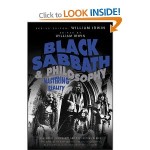
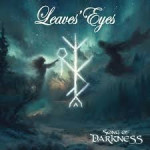
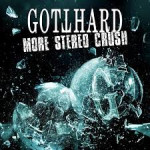


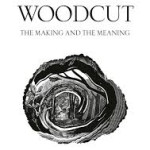






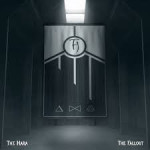
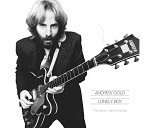
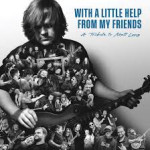



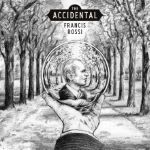
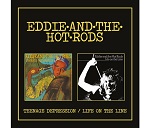

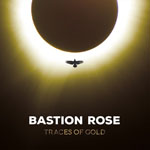
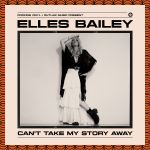

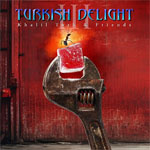

 PDF - you can delete unwanted sections
PDF - you can delete unwanted sections



































Pingback: 20 » November » 2012 » And Philosophy News